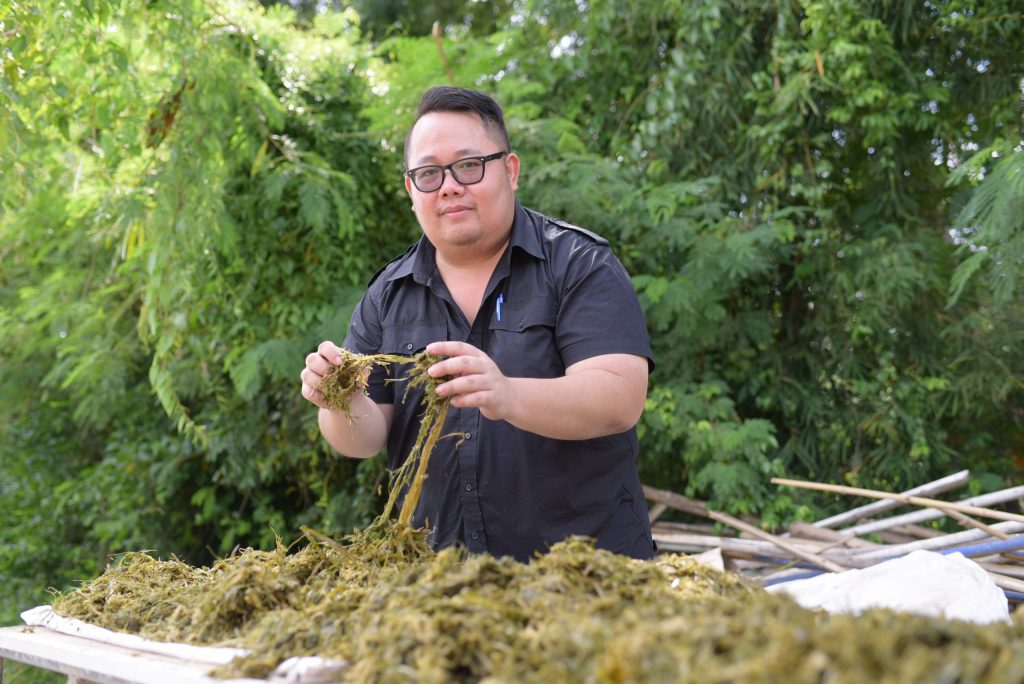
Previously, sugarcane farmers used to burn and dispose of agricultural residues before harvesting their crops. This practice of burning agricultural residues contributed to environmental problems on a national level, particularly the issue of fine particulate matter or PM2.5 pollution. In order to address this problem, Dr. Saran Chankeaw and Assoc. Prof. Dr. Kittisak Ariyakul from the Department of Textile Product Design, Faculty of Textile Industry and Fashion Design, Rajamangala University of Technology Phra Nakhon, studied the elimination of agricultural residues that posed environmental pollution risks.
To tackle this issue, they employed the concept of eco-efficiency to develop textile fibers from sugarcane leaves, aiming to create woven products that could transfer the knowledge of sustainable production practices. These products were made from naturally dyed sugarcane fiber. The researchers studied the suitable components for producing fibers from sugarcane leaves and explored natural dyeing techniques. This innovative approach resulted in unique local products that met international standards. The research was funded by the National Research Council of Thailand (NRCT) as part of the 2021 Challenge Thailand for Knowledge Management and Community Benefits project.
